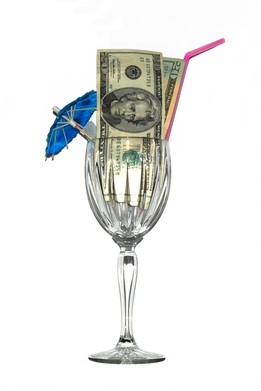Resources

What is a resource? A resource is a source of supply, support, or aid, especially one that can be readily drawn upon when needed. That is what we intend to be to you. We intend to be a resource that you can utilize and tap into at an Uber notice. Now that you know what a resource is, you may be wondering why it is that we are focused on economic ones right now. The answer to that is very simple. Every financial decision you make can either help or hurt you. On top of that, it doesn’t just help or hurt you alone, it can help or hurt everyone around you from your brothers to your sisters, neighbors and everyone else. To make it short, in essence your financial decision whether used responsibly or carelessly can be the pivotal force that changes the world. For this very reason alone they don’t really teach financial literacy skills in schools. There are some other reasons as well but that is the primary reason. If someone isn’t financially literate then it is almost impossible for them to behave financially responsible and see positive outcomes for themselves. That lends itself for other individuals to be able to capitalize on that individual state of unawareness.
With all of that being said it is important to notice that for the first time in US history, black people, as a collective, have a buying power of $1 trillion according to Nielsen & NNPA, Resilient, Receptive and Relevant, the African-American Consumer Report 2013. In the same report, NNPA states that black people spend 30% more than any other demographic on retail products, 37% more time watching TV and outpace other demographics on smartphone ownership. Black people also are 28% more time reading financial magazines/websites yet our financial participation within the financial sector trails behind others. We trail behind in possession of stocks, mutual funds, first mortgages and other financial products/services. What this means is that if we decide engage in financially responsible behavior and collectively pool our money, then we can change the game. We can change our neighborhoods into communities, we can change the negative perception of use in the media, we can change the system which is currently disproportionately targeting black people for their physical characteristics and lifestyles of just being black. The changes that we can bring about are endless.
In order to do this, we have to gain control of our disposable and discretionary incomes. Disposable income is your income after taxes. This income in essence can be used to pay for a combination of your essential expenses and optional ones as well. They can be funds which you currently direct towards investing in particular products and supporting businesses that feel are necessary. Discretionary income can be defined as the remaining amount of money an individual has after your taxes (disposable income), pension and other essential expenses (ex. rent, transportation, etc.) are paid. Your discretionary income should be split up into 3 - 4 categories (Emergency Fund, Investing, Paying Down Debt (if any) & Savings.) Knowing this we have to gain control off own income. If we don’t control our disposable and discretionary incomes then we will never be free and eventually will become permanent second-class citizens world-wide.
We are currently in the process of building a resource database to facilitate the process. Below are list of some resources which you may utilize in the mean time as we begin this journey. We will be added more resources as we grow.
With all of that being said it is important to notice that for the first time in US history, black people, as a collective, have a buying power of $1 trillion according to Nielsen & NNPA, Resilient, Receptive and Relevant, the African-American Consumer Report 2013. In the same report, NNPA states that black people spend 30% more than any other demographic on retail products, 37% more time watching TV and outpace other demographics on smartphone ownership. Black people also are 28% more time reading financial magazines/websites yet our financial participation within the financial sector trails behind others. We trail behind in possession of stocks, mutual funds, first mortgages and other financial products/services. What this means is that if we decide engage in financially responsible behavior and collectively pool our money, then we can change the game. We can change our neighborhoods into communities, we can change the negative perception of use in the media, we can change the system which is currently disproportionately targeting black people for their physical characteristics and lifestyles of just being black. The changes that we can bring about are endless.
In order to do this, we have to gain control of our disposable and discretionary incomes. Disposable income is your income after taxes. This income in essence can be used to pay for a combination of your essential expenses and optional ones as well. They can be funds which you currently direct towards investing in particular products and supporting businesses that feel are necessary. Discretionary income can be defined as the remaining amount of money an individual has after your taxes (disposable income), pension and other essential expenses (ex. rent, transportation, etc.) are paid. Your discretionary income should be split up into 3 - 4 categories (Emergency Fund, Investing, Paying Down Debt (if any) & Savings.) Knowing this we have to gain control off own income. If we don’t control our disposable and discretionary incomes then we will never be free and eventually will become permanent second-class citizens world-wide.
We are currently in the process of building a resource database to facilitate the process. Below are list of some resources which you may utilize in the mean time as we begin this journey. We will be added more resources as we grow.
| Personal Life Improvement Tasks | Community Building/Development Tasks | General Information |
|---|---|---|
| Making a Budget | Open a Black Owned Bank Account | Black 365 |
| Reviewing Your Credit Report | ||
| Preparing a Will | ||
| Writing a Resume |
